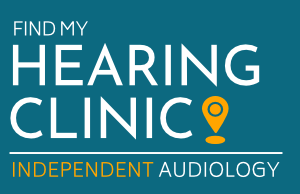Talking to Your Parents About Hearing Loss

Hearing loss can creep up over time. Those around the person with hearing loss often notice a change in hearing. This means you might first notice the change in your parent’s hearing. Having hearing loss and not seeking treatment can affect a person’s physical, mental, and emotional health.
However, for some people, it can be a touchy subject. While hearing loss can occur at any age, when it happens for older people, it is often associated as a sign of getting older and yet another change in a body that is not what it used to be. This can make it tricky to have a conversation about hearing loss.
At Find My Hearing Clinic, our independent hearing care professionals have put together this guide with tips on how to talk to your parents about hearing loss.
1. Take the time to observe.
We all mishear things occasionally. So, if you think something is wrong with a parent’s hearing, the first step is to take time to observe. Was it just a once-off, or are there signs of hearing loss? These signs might include:
a) Turning the TV/radio/phone up loudly.
b) Do not want to participate in conversations in noisy situations or not want to be in these situations.
c) Mishearing things- this can include giving unexpected answers to questions, which indicates they did not hear the question
d) Dominating/controlling the conversation to avoid listening
e) Giving unexpected answers indicates they did not hear the question.
f) Asking for repeats often.
By observing the patterns rather than jumping straight in the first time they mishear something, you can be sure that there is likely an issue that needs addressing.
2. Approach the subject carefully.
When you approach the topic of hearing loss, some people are happy to talk about it, while others may not be ready to hear about it, particularly if they have not noticed the signs themselves. So, when you first raise the issue, do so in a sensitive and supportive manner, and be ready for any response. You won’t know what the person is up to with their hearing journey until you talk to them. Be prepared with options for how you can help once you have raised it, for example, by offering to help the person make an appointment with an independent hearing clinic for a hearing test or going with them to their appointment. Be supportive, but leave some space for the person to tell you what they need and how they would like to handle it.
3. Give examples
Once you have raised your concerns, use examples of what you have noticed and why you are concerned. Constructive comments can include things like:
“I noticed you had trouble following the conversation when we were out at the restaurant. Did you notice that too?”
or
“You seem to be turning the TV up louder than you used to. Have you been having trouble hearing it?”
Whatever you have observed, be specific when you talk to them about it and ask questions to involve your parents in the conversation. You can even ask them if there is anything they have noticed that is more difficult to hear.
4. Respect their choice.
When you tell your parent you are concerned about their hearing, they may or may not already be aware of the issue. They also may or may not be ready to act. They might need time to catch up and be prepared for a hearing test, mainly if they had not noticed they were not hearing well. Avoid judging them or demanding they have a hearing test. This does not tend to be helpful and can be damaging to relationships. If your parents are not ready to have a hearing test, let them know you are here to support them and are happy to help them when they are ready. Then, you can try again later once they have had a chance to think about it.
Once your parent is ready, the best place to start is to schedule a hearing test with your local independent hearing clinic. By seeing your local independent hearing clinic, not only can you be sure your parent will receive the best independent advice for their needs while also supporting a business within their local community.
You can find your local independent hearing clinic, through Find My Hearing Clinic – Clinic Locator
